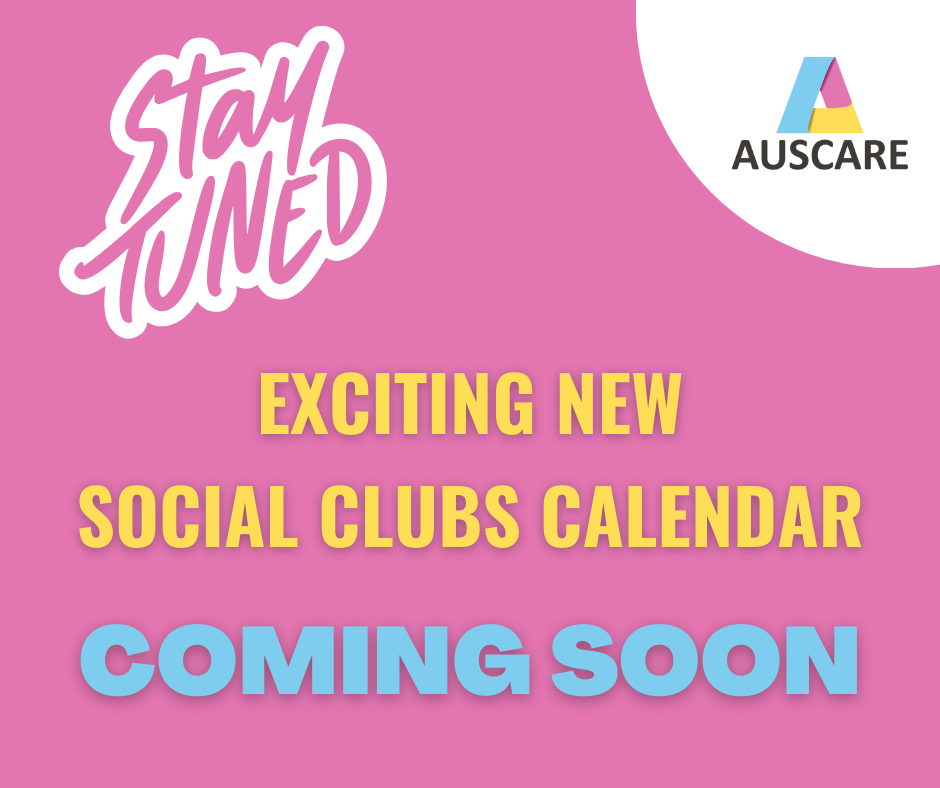What is Support Coordination?
Support Coordination is a NDIS-funded support designed to build the capacity of participants.
Our Support Coordinators will work closely with you to find and engage service providers that are best suited to meet your individual needs and requirements.
This may include assistance with finding and coordinating personal and medical care, accessing financial benefits and housing, and connecting with community resources and services.
If you or a loved one requires Support Coordination services, don’t hesitate to reach out for assistance. Auscare Support is here to assist you every step of the way.
Why choose Auscare Support?
Navigate the NDIS
Our experienced Support Coordinators can assist you to navigate the NDIS. Our person centred approach means we will always be guided by your individual requirements.
Explore your options
Our Support Coordinators will identify the supports and therapies best suited to your individual wants and needs. We can liaise with providers on your behalf.
Supercharge your Plan
Our Support Coordinators are passionate about ensuring your NDIS funds are used effectively so that you get the most out of your Plan. We provide guidance and knowledgeable advice along the way to allow you to make confident decisions and choices about your supports.
Even more reasons to choose us…
UNDERSTAND YOUR ASPIRATIONS
Really take the time to work through your unique goals and needs.
CHOOSE THE RIGHT SUPPORTS
Assist you to understand and implement the right services and supports.

DEVELOP YOUR INDEPENDENCE
Support you to develop your practical skills and capacity so you’re as independent as possible.
PREPARE YOU FOR REVIEWS
Plan for your review by preparing a budget, gathering reports, and collecting evidence.

RECEIVE YOUR CALLS
Provide you with their contact details and be available, as agreed.

CONNECT YOU WITH SERVICES
Connect you with your community, mainstream and government services.
“My brother’s current Support Coordinator has been an amazing resource that has allowed us to identify his needs.
She is continuously and consistently well-prepared, reliable, personable and thorough.
Her diligence has seen us move forward in significant ways while balancing human resources and budget.”
-Alan. C
FAQs
What is a Support Coordinator?
A Support Coordinator will help you make the most of your NDIS funds and work towards your goals once your budget has been approved.
You might need short-term assistance with identifying and managing supports, or long-term assistance that includes coordinating providers, signing service agreements and becoming more independent. You may even require specialised management of your needs.
Your Support Coordinator will help you to find the providers that best fit your needs and offer the right level of support for your requirements today. Over time, they will work towards boosting your skills and confidence.
The goal is to facilitate your enjoyment of an ordinary community life while growing your capacity.
There are three levels of Support Coordination, each designed to meet different levels of need. The level you are funded for will be outlined in your plan.
- Support Connection
- Coordination of Supports
- Specialist Support Coordination
In putting your plan into action, your Support Coordinator will:
- Use their training and local knowledge to offer you a broad choice of providers and solutions.
- Allow you control over the supports you receive, including how and when you receive them.
- Manage service delivery, including setting up Service Agreements.
- Work with you to monitor your progress, continuously refining and reviewing.
- Help prepare you for NDIS Plan reassessments and reports to the NDIA.
Can I get funding for Support Coordination?
Support Coordination is not automatically included in your NDIS budget, so you will have to request it at your NDIS Planning Meeting.
Whether it’s your first or fifth meeting, the NDIA will determine whether Support Coordination is ‘reasonable and necessary’ when assessing your eligibility.
When evaluating if Support Coordination is suitable for you, the NDIA will take into account how new you are to the NDIS and if you need to build confidence and skill to manage the complexities of the system.
The informal assistance you already have in place (like family) will come into play as will any major changes you’re going through, including big life transitions or changes to accommodation. Other complex needs you might have will also be considered.
Since the NDIA wants you to build your skills and confidence, as these increase over time, your level of Support Coordination should decrease.
As a result, Support Coordination is not offered on an ongoing basis, but is funded plan by plan.
Heading into your Planning or Plan Review meeting, you should be prepared to detail how Support Coordination will help you keep building capacity and achieve your goals. It’s important that you’re armed with the documentation and details you need to present your case.
As a general rule, you could expect to receive 1-9 hours of funding per month for Support Coordination, depending on your level of need.
The great news is, you get additional funds to cover the cost of Support Coordination, which means it doesn’t eat into the funding you have available for other services and supports.
If you’d like to change Support Coordinators mid Plan Review, you don’t need to consult the NDIS. You just need to double check the service agreement you have with your current provider to understand their notice period, inform them of your intentions, and make the switch.
What’s right for me: Support Connection, Support Coordination or Specialist Support Coordination?
There are 3 levels of Support Coordination that can be included in your plan, and the level you are funded for will be outlined.
- Level 1: Support connection
Designed to increase your capacity to connect with informal, community and funded supports. - Level 2: Coordination of supports
Focuses on building the skills to understand and implement your plan. A Support Coordinator will assist you with choosing providers who will deliver supports best suited your needs and requirements. They also help you maintain relationships with providers, increase your independence and manage service delivery. - Level 3: Specialist support coordination
Designed specifically for participants requiring a higher level of support, where there are additional or complex needs or high-level risks. Your Specialist Support Coordinator will normally be an experienced practitioner like a psychologist or social worker.
Your planner will assess your full situation to determine what level of support is reasonable and necessary for you to achieve your goals.
What is the difference between Support Coordination and Plan Management?
Support Coordination and Plan Management are similar in that they both assist you with making the most of your NDIS budget, but they differ in some key respects.
Your Support Coordinator will assess your situation and goals, interpret your plan and work out what combination of providers are the best fit for your needs.
They will also help build connections with providers, community and government networks to assist you with living a more fulfilled life. But they don’t look after the financial side of things.
Plan Managers are the ones who sort out your finances – they’re like your own NDIS bookkeeper.
Invoices from your providers are received and paid by your Plan Manager. Plan Managers also claim your funds from the NDIS portal and will provide you with a snapshot of where you are at.
Both Plan Management and Support Coordination are funded by the NDIS and you need to ask for both in your planning meeting. With Support Coordination, you need to prove that it is ‘reasonable and necessary’ for you to build your capacity and meet your goals.
With Plan Management, there are no conditions for funding and there’s a good chance that you’ll receive it, if you ask for it in your planning meeting.
You can receive funding for Support Coordination and Plan Management in the one plan. Since your Support Coordinator and Plan Manager offer complementary services, they can work closely to ensure that most of your bases are covered in bringing your plan to life.
While Plan Management allows you to access both registered and non-registered providers, giving you choice and opportunity, it doesn’t, however, help you choose the right provider, that’s the role of your Support Coordinator.
Under which funding category does Support Coordination fall?
There are three types of support budgets that may be funded as part of your NDIS plan. They are your:
- Core Supports Budget.
- Capacity Building Supports Budget.
- Capital Supports Budget.
Since the objective of your Support Coordinator is to help you build your independence and skills (ie. Your capacity), Support Coordination falls under your Capacity Building Supports Budget.
Your Support Coordination budget is approved during the plan review process and is a set, annual number of hours. It is created for your Support Coordinator to help you action your plan.
Your Capacity Building Supports Budget can only be used to purchase approved, individual supports. These might also include:
- Improved Living Arrangements: Support to help you find the right place to live and to keep it well maintained.
- Increased Social and Community Participation: development and training to increase your skills so you can participate in community, social and recreational activities.
- Finding and Keeping a Job: employment-related support, training and assessments that help you find and keep a job.
- Improved Relationships: support for developing positive behaviours and interactions with others.
- Improved Health and Wellbeing: exercise or diet advice to manage the impact of your disability. (Memberships are not funded as part of this).
- Improved Learning: training advice to help you move from school to further education.
- Improved Life Choices: Plan Management to help you manage your plan, funding and paying for services.
- Improved Daily Living: Assessment, training or therapy to help increase your skills, independence and community participation.
Unlike your Capacity Building Budget, Your Core Supports Budget is designed to assist you with everyday living.
This can include assistance with daily needs around the house; consumables; participation in social and community activities and transportation.
Your Capital Supports Budget could include higher-cost assistive technology (lower cost normally falls under Core Support) and home modifications.
When it comes to funded supports, the non-NDIS-related assistance from family, friends and other community and government services do not fall under any of these support categories.
How can I find the right supports?
People who can assist you with reaching your goals could come from your informal networks like family and friends, or local community and government organisations that are independent of the NDIS.
Supports can also include registered and non-registered NDIS-providers, both individual and organisational, which are covered by your NDIS budget.
Word-of-mouth is also an important tool for building out your support network.
Support Coordinators are a great resource when it comes to actioning your plan. The best Support Coordinators have extensive knowledge of the disability and community sectors in their local area, which helps open up choice and possibility for you.
Not only do they find imaginative, local solutions for turning your plan into a working roadmap for reaching your goals. They have first-hand experience with a broad range of local providers and can help you choose those who are the best quality and who are also free to see you.
A great Support Coordinator will help identify the people already in your orbit who can support you, as well as local community and government organsiations who you may or may not have accessed yet.
When it comes to finding the right providers, you can conduct your own ‘desktop research’, like searching google, or can visit the NDIS provider pages to find lists of registered providers: https://www.ndis.gov.au/participants/working-providers/find-registered-provider
There are also disability sector groups that have their own listings like Karista, Clickability and MyCareSpace.
The important thing to know is that if you’re Self-Managed or Plan Managed, you can choose non-registered providers.
But if you’re Agency Managed, you can only choose registered providers.




 1800 940 515
1800 940 515


